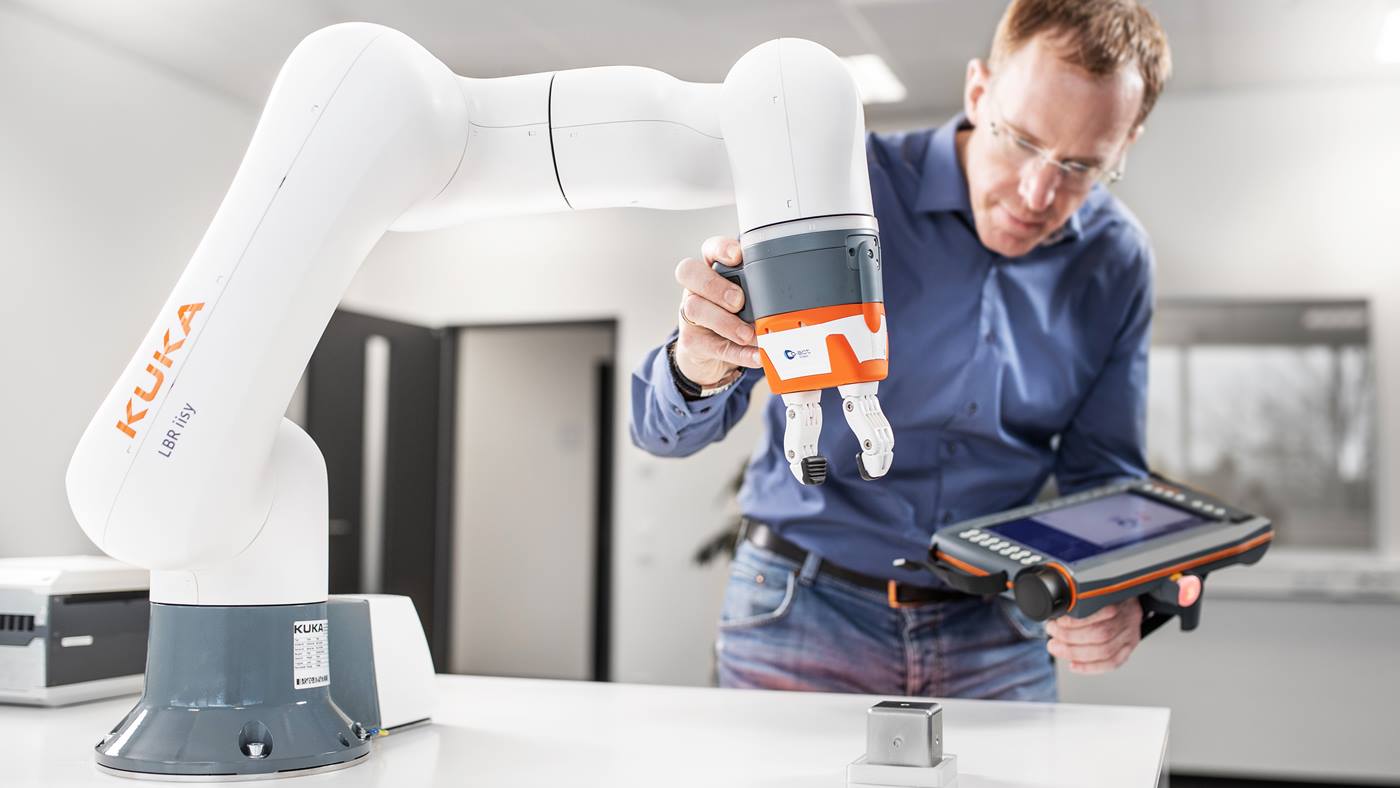These are the finalists of the “Open Platform Challenge”:
Team SPIRIT
The team from the Institute of Robotics and Mechatronics at the German Aerospace Center (DLR) is working on the automation of maintenance and inspection tasks in the oil and gas industry. A single large refinery often requires more than 50,000 maintenance and inspection routines. To this end, a novel flying robot is being developed that is suspended from a cable and features advanced telepresence technology, combining state-of-the-art AI-based perception and control theory. This solution enables safe and intuitive operation of air manipulators for industrial applications.
Team Fashion & Robotics
The fashion and textile industry is under great pressure to reduce its environmental footprint by producing more durable, high-quality products and developing circular material flows. The “Creative Robotics” and “Fashion and Technology” departments at the University of Art and Design Linz are working on creating a way for small and medium-sized textile companies and designers to increase their production by setting up microfactories with collaborative robot systems, while simultaneously enabling more efficient sorting and finishing processes on an industrial scale.
Team JARVIS
The goal of the finalists of the Merlin Laboratory of the Italian Politecnico di Milano is to develop a complete plug-and-play method for programming collaborative robotic applications (e.g. assembly and packaging) that is fully integrated into the iiQKA ecosystem. This will facilitate their introduction in small and medium-sized enterprises. To-gether with the integration of artificial intelligence into the new iiQKA ecosystem, the concept enables unskilled operators to instruct the robot in a new task and to generalize in unknown situations, including new tasks and product variants.



